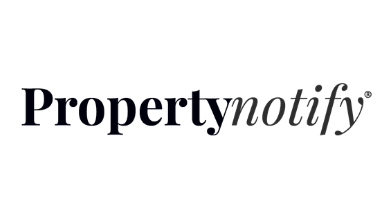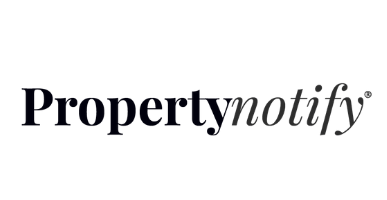Islay Robinson, co-founder and CEO of London-based Enness Global Mortgages, is not one to run from difficult situations. In fact, that’s exactly what he and his firm specialize in—solving complex and high-value mortgage lending scenarios.
“We help high-net-worth and prominent individuals secure mortgage finance against international real estate through our network of over 500 different lenders,” Mr. Robinson said. It’s a practice he’s been perfecting since founding the firm in 2007.
Today Enness has shepherded and enabled purchasing for everything from single-family residences to multimillion-pound property developments. We caught up with him recently to find out where interest rates in the U.K. are going, why mortgages are beneficial in buying properties abroad and where the next luxury hubs are cropping up.
Mansion Global: How did you get into the mortgage industry?
Islay Robinson: When I was at university, I took a summer job with a mortgage broker in London. At that stage, I wasn’t even aware of what a mortgage was, let alone what a mortgage broker did. During that summer I met some great people. I also saw the effect mortgage brokers had on people’s lives...and also how much some of them were earning. I worked with the company until I finished my studies, then started full-time with the same firm after I got my degree. I worked my way up to associate director within four years.
MG: What led to the founding of Enness Global Mortgages?
IR: The business partner who I founded Enness with worked with me at that same mortgage brokerage. During our time at the firm, we built up a solid position in the company. We specialized in helping international clients who were buying properties in the U.K. or more complicated transactions. Eventually, though, we realized that we no longer fit the company’s mold, and so we decided to branch out on our own. We did that right at what turned out to be the start of the financial crisis in 2007. Enness was founded between the run on Northern Rock in the U.K. and the collapse of Lehman Brothers. It was a hard start, and we were forced to be entrepreneurial and to really fight for our clients—something which remains a key part of Enness’s ethos today.
MG: International buyers tend to lean all-cash, but have low interest rates encouraged some to finance?
IR: It’s a common view that international buyers only purchase in cash. Usually, it's because a home in a foreign country is seen as an investment or luxury or because the perceived complexity of using a mortgage dissuades people from trying to borrow. However, that has been changing over the last few years. There are significant advantages to using a mortgage to buy an overseas property—taxation is one of the primary motivators, especially in Europe. Mortgages can also be used to take advantage of low-interest rates and flexible lending criteria, which can be very advantageous. Getting a mortgage in some countries is more complicated than in others. The U.K. has a highly efficient mortgage environment for international buyers, for example. Comparatively, Greece and Italy have very limited offerings. We work with hundreds of lenders and can secure mortgage finance anywhere. We know how to do it and who to speak to.
MG: Where do you see interest rates in the U.K. headed?
IR: U.K. interest rates have been very low for a long time. Every time we think we’ve hit the bottom, we see another lender cut their rates. We now have mortgages starting at 1.2% for high-net-worth borrowers and long-term fixed rates from 1.8%. Honestly, it’s hard to imagine anything cheaper, but who knows … the market is ultra-competitive, and we have new lenders entering all the time. On the other hand, the Bank of England base rate (the index off which many mortgages are based) is at an all-time low (0.1%). Although the idea of negative interest rates has been floated, I think that now looks very unlikely. On that basis, interest rate rises are possibly much more likely in the medium term. Still, I believe interest rates will remain at their current, very low, level for the foreseeable future.
MG: Where is foreign interest in London coming from these days?
IR: In my view, the U.K. remains the epicenter of international property investment. Even after Brexit, that hasn’t changed. Last year, Enness helped clients of 78 different nationalities buy property in the U.K., which gives an example of the U.K.’s continued international appeal.
As soon as the skies open, we’re expecting significant pent-up demand to hit the U.K. market. We are already seeing considerable interest from the usual markets of Hong Kong, the Middle East and North America.
MG: What has surprised you the most about the past year?
IR: I was surprised by the pace at which many people re-assessed their living environment during the pandemic and made significant changes to how they live. The movement out of cities was fueled by people searching for space, security and flexible living. The non-city housing markets in the U.K. haven’t been so busy for decades, and the sheer movement of people is incredible.
MG: What is your outlook for the prime central London market?
IR: We see significant interest in the ultra-prime U.K. market: There have been a considerable number of very large acquisitions this year. London has near-universal appeal and it remains a fluid marketplace. We have already seen the global elite increase their U.K. property holdings, and I think that will continue.
MG: Where are the U.K.'s up-and-coming luxury hubs?
IR: Luxury is becoming local. Areas like St John’s Wood are a good example. It’s a well-heeled neighborhood packed with expensive homes and excellent schools. In the past, the local amenities were lacking because it was so easy to take a 15-minute cab ride into Mayfair for dinner or whatever else you fancied. The local St John’s Wood high street is now rapidly evolving from a pretty dire stretch of chain retailers to expensive boutiques, artisan coffee shops, independent restaurants and state-of-the-art exercise studios. The same is happening across London.
MG: What's your favorite part of your own home?
IR: My children’s bedroom. We have two young girls, and they are lucky to have a large (pink!) room filled with books and toys. We have just put bunk beds in and seeing them both in bed with a pile of books at night is a wonderful sight.
MG: What's your definition of luxury?
I’m not one for “possessions” or “things,”so for me, luxury is anything that gives me more time in the day or gives me time with my family—my [personal assistant] managing my inbox, having my dry cleaning picked up rather than carrying it to the shop and my plan to purchase a second home in France this year. I can live and work and be with my family over the summer without the distractions of London.
MG: What would your dream home look like?
IR: A lateral home on a hill in a country where the sun shines and the main living area overlooks the swimming pool and garden. It doesn’t need to be big or extravagant, just private, peaceful and with a superfast broadband connection.




